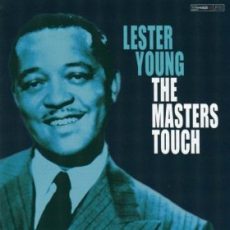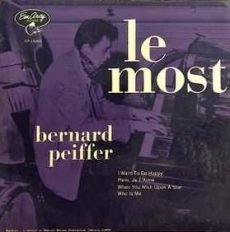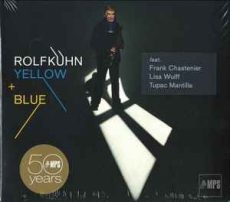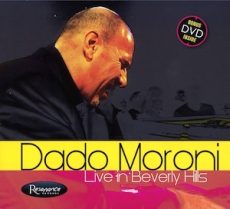
Daily Dose Of Jazz…
James Theodore Powell was born October 24, 1914 in New York City. In the Thirties he worked with Frank Newton and other leaders in the city. In 1940 and ‘41 he recorded with Billie Holiday, whose band was composed of Roy Eldridg, Carl Frye, Kermit Scott, Sonny White, Lawrence Lucie, John Williams and Hal West. The second date had him working with Lester Boone, Ernie Powell, Eddie Heywood, Paul Chapman, Grachan Moncur, and Herbert Cowans.
Throughout the decade he recorded with Billy Eckstine and His Orchestra. The resulting album was released in 1960 as Mr. B. He also recorded in New York with Don Byas and Hal Singer. Powell then joined the Illinois Jacquet Orchestra with Tadd Dameron and Jimmy Mundy arranging
The Fifties saw Jimmy as a member of the Dizzy Gillespie Big Band that recorded Groovin’ High live at Birdland. He went on to record several albums with Gillespie. He recorded with Betty Carter, Bernard Purdie and Otis Redding. Throughout the rest of his career he performed and recorded into the !970s.
Alto saxophonist Jimmy Powell died on February 16, 1994.
More Posts: history,instrumental,jazz,music,saxophone

Daily Dose Of Jazz…
Bernard Peiffer was born on October 23, 1922 in Épinal, France and was raised in a musical family, with his father and uncle playing the violin and the organ, respectively. Learning piano at age nine, he studied under Pierre Maire and quickly demonstrated his abilities by repeating long sections of classical works by ear. He won the 1st Prize in Piano at the Paris Conservatory and began his professional career at the age of twenty. playing with André Ekyan and Django Reinhardt.
During World War II, he joined the French resistance after witnessing the execution of a friend by the Gestapo in the streets of Paris. Soon afterwards he was captured, and was incarcerated for over a year. By the early 1950s, he began a successful career, playing with Django Reinhardt, leading his own quintet, composing film soundtracks, and achieving notice in the clubs of Paris, Monte Carlo and Nice, and eventually became nationally known.
He moved to Philadelphia, Pennsylvania in 1954 with his wife Corine and daughter Rebecca. The subsequent loss of his third daughter profoundly affected him, resulting in Poem for a Lonely Child. During his first years in America, Bernard achieved considerable success, performing at Carnegie Hall, Birdland, and the Newport Jazz Festival. He recorded for the EmArcy, Decca and Laurie labels.
Peiffer released his last commercial album in 1965 and, after having kidney surgery a few years later, restricted himself to performing and teaching, mainly in Philadelphia. His students included Uri Caine, Sumi Tonooka, Tom Lawton, and Don Glanden. His last major appearance was at the 1974 New York/Newport Festival at Carnegie Hall. Pianist, composer and teacher Bernard Peiffer, whose nickname was Le Most for his piano skills, died on September 7, 1976. He was 53.
More Posts: bandleader,composer,educator,history,instrumental,jazz,music,piano

Daily Dose Of Jazz…
Harry Austin was born on October 22, 1958 in Capetown, South Africa. His passion for guitar was evident at a very tender age and spent his youth mingling with gifted street musicians around the city who greatly influenced him over the years.
A versatile guitarist and a wholehearted Jazz composer. In the late 70’s, he co-founded and performed with the “Touch” band and enjoyed great national success until the mid 80’s. Following this first accomplishment, he toured and made appearances with various musicians and live bands across South Africa until he made his international debut with the Andrew Young band in 2002. For the next 3 years, he played with the band in numerous countries such as China, Turkey and Tunisia.
Between 2005 and 2008, he performed at Le Royal Meridien Beach Resort & Spa in Dubai. During 2009 & 2010, he toured throughout the United Arab Emirates. After touring Harry released 2 albums over the net titled Mojaezz, and Easylike.
Guitarist Harry Austin, who performs in the smooth jazz idiom, continues to play, tour and record.
More Posts: bandleader,guitar,history,instrumental,jazz,music

Daily Dose Of Jazz…
Tupac Mantilla was born October 21, 1978 in Bogotá, Columbia. Holding a Master of Music Honors Degree from the New England Conservatory, he won first prize at the Bogotá Philharmonic Orchestra’s Classical Soloist Competition in 2002.
As a scholar, Mantilla is associated with Stanford University and the Berklee College of Music. He gives workshops and lectures and runs rhythm/percussion oriented programs worldwide, through Percuaction’s Global Rhythm Institute (GRI), of which he is founder, CEO and artistic director.
Mantilla has appeared at festivals, institutions and venues and several percussion-oriented workshops and lectures for multi-national companies and organizations around the world.
Mantilla has collaborated and performed with artists including Bobby McFerrin, Bill Cosby, Esperanza Spalding, Zakir Hussain, Savion Glover, Danilo Perez, Tia Fuller, Julian Lage, Reinhard Flatischler, Kenny Werner, John Patitucci, Bob Moses, Cecil McBee, Medeski Martin & Wood, Lisa Fischer, Selene Muñoz, Jamey Haddad, Anders Koppel, and the Bogotá’s Philharmonic Orchestra, among others.
Drummer and percussionist Tupac Mantilla, who is the artistic director of the percussion group Tekeyé, continues to devote much of his time to his solo percussion project.
More Posts: bandleader,frums,history,instrumental,jazz,marimba,music,percussion

Daily Dose Of Jazz…
Edgardo “Dado” Moroni was born October 20, 1962 in Genoa, Italy and started playing piano at age four. A self-taught musician, by his mid-teens he was playing professionally around Italy and by age 17 had recorded his first album.
Throughout the 1980s Dado worked mostly in Europe and played a long stint as part of former Duke Ellington bassist Jimmy Woode’s trio at Widder Bar in Zurich, Switzerland. At 25, in 1987 he served as a juror at the prestigious Thelonious Monk International Piano Competition.
He moved to the U.S. in 1991 and became part of the New York jazz scene. He appeared regularly as a leader and sideman at Blue Note, Birdland, and the Village Vanguard. During this period he recorded several CDs.
Moroni has played with Freddie Hubbard, Clark Terry, Zoot Sims, Harry “Sweets” Edison, Ray Brown, Ron Carter, Oscar Peterson, Ahmad Jamal, Hank Jones, Niels-Henning Ørsted Pedersen and Alvin Queen.
Based in Italy, Dado continues to perform worldwide. In 2007 he won the Italian Jazz Awards as Best Jazz Act. 2009 had him named Best Italian Jazz Pianist in the Top Jazz referendum sponsored by Musica Jazz magazine. The following year he was appointed Professor of Jazz Piano at Giuseppe Verdi Conservatory of Music in Turin, Italy.
Pianist, composer and educator Dado Moroni continues to perform, record and teach.
More Posts: composer,educator,history,instrumental,jazz,music,piano


